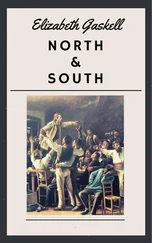1 ...6 7 8 10 11 12 ...29 'Margaret!' said Mr. Hale, at last, in a sort of sudden desperate way, that made her start. 'Is that tapestry thing of immediate consequence? I mean, can you leave it and come into my study? I want to speak to you about something very serious to us all.'
'Very serious to us all.' Mr. Lennox had never had the opportunity of having any private conversation with her father after her refusal, or else that would indeed be a very serious affair. In the first place, Margaret felt guilty and ashamed of having grown so much into a woman as to be thought of in marriage; and secondly, she did not know if her father might not be displeased that she had taken upon herself to decline Mr. Lennox's proposal. But she soon felt it was not about anything, which having only lately and suddenly occurred, could have given rise to any complicated thoughts, that her father wished to speak to her. He made her take a chair by him; he stirred the fire, snuffed the candles, and sighed once or twice before he could make up his mind to say—and it came out with a jerk after all—'Margaret! I am going to leave Helstone.'
'Leave Helstone, papa! But why?'
Mr. Hale did not answer for a minute or two. He played with some papers on the table in a nervous and confused manner, opening his lips to speak several times, but closing them again without having the courage to utter a word. Margaret could not bear the sight of the suspense, which was even more distressing to her father than to herself.
'But why, dear papa? Do tell me!'
He looked up at her suddenly, and then said with a slow and enforced calmness:
'Because I must no longer be a minister in the Church of England.'
Margaret had imagined nothing less than that some of the preferments which her mother so much desired had befallen her father at last—something that would force him to leave beautiful, beloved Helstone, and perhaps compel him to go and live in some of the stately and silent Closes which Margaret had seen from time to time in cathedral towns. They were grand and imposing places, but if, to go there, it was necessary to leave Helstone as a home for ever, that would have been a sad, long, lingering pain. But nothing to the shock she received from Mr. Hale's last speech. What could he mean? It was all the worse for being so mysterious. The aspect of piteous distress on his face, almost as imploring a merciful and kind judgment from his child, gave her a sudden sickening. Could he have become implicated in anything Frederick had done? Frederick was an outlaw. Had her father, out of a natural love for his son, connived at any—
'Oh! what is it? do speak, papa! tell me all! Why can you no longer be a clergyman? Surely, if the bishop were told all we know about Frederick, and the hard, unjust—'
'It is nothing about Frederick; the bishop would have nothing to do with that. It is all myself. Margaret, I will tell you about it. I will answer any questions this once, but after to-night let us never speak of it again. I can meet the consequences of my painful, miserable doubts; but it is an effort beyond me to speak of what has caused me so much suffering.'
'Doubts, papa! Doubts as to religion?' asked Margaret, more shocked than ever.
'No! not doubts as to religion; not the slightest injury to that.' He paused. Margaret sighed, as if standing on the verge of some new horror. He began again, speaking rapidly, as if to get over a set task:
'You could not understand it all, if I told you—my anxiety, for years past, to know whether I had any right to hold my living—my efforts to quench my smouldering doubts by the authority of the Church. Oh! Margaret, how I love the holy Church from which I am to be shut out!' He could not go on for a moment or two. Margaret could not tell what to say; it seemed to her as terribly mysterious as if her father were about to turn Mahometan.
'I have been reading to-day of the two thousand who were ejected from their churches,'—continued Mr. Hale, smiling faintly,—'trying to steal some of their bravery; but it is of no use—no use—I cannot help feeling it acutely.'
'But, papa, have you well considered? Oh! it seems so terrible, so shocking,' said Margaret, suddenly bursting into tears. The one staid foundation of her home, of her idea of her beloved father, seemed reeling and rocking. What could she say? What was to be done? The sight of her distress made Mr. Hale nerve himself, in order to try and comfort her. He swallowed down the dry choking sobs which had been heaving up from his heart hitherto, and going to his bookcase he took down a volume, which he had often been reading lately, and from which he thought he had derived strength to enter upon the course in which he was now embarked.
'Listen, dear Margaret,' said he, putting one arm round her waist. She took his hand in hers and grasped it tight, but she could not lift up her head; nor indeed could she attend to what he read, so great was her internal agitation.
'This is the soliloquy of one who was once a clergyman in a country parish, like me; it was written by a Mr. Oldfield, minister of Carsington, in Derbyshire, a hundred and sixty years ago, or more. His trials are over. He fought the good fight.' These last two sentences he spoke low, as if to himself. Then he read aloud,—
'When thou canst no longer continue in thy work without dishonour to God, discredit to religion, foregoing thy integrity, wounding conscience, spoiling thy peace, and hazarding the loss of thy salvation; in a word, when the conditions upon which thou must continue (if thou wilt continue) in thy employments are sinful, and unwarranted by the word of God, thou mayest, yea, thou must believe that God will turn thy very silence, suspension, deprivation, and laying aside, to His glory, and the advancement of the Gospel's interest. When God will not use thee in one kind, yet He will in another. A soul that desires to serve and honour Him shall never want opportunity to do it; nor must thou so limit the Holy One of Israel as to think He hath but one way in which He can glorify Himself by thee. He can do it by thy silence as well as by thy preaching; thy laying aside as well as thy continuance in thy work. It is not pretence of doing God the greatest service, or performing the weightiest duty, that will excuse the least sin, though that sin capacitated or gave us the opportunity for doing that duty. Thou wilt have little thanks, O my soul! if, when thou art charged with corrupting God's worship, falsifying thy vows, thou pretendest a necessity for it in order to a continuance in the ministry. As he read this, and glanced at much more which he did not read, he gained resolution for himself, and felt as if he too could be brave and firm in doing what he believed to be right; but as he ceased he heard Margaret's low convulsive sob; and his courage sank down under the keen sense of suffering.
'Margaret, dear!' said he, drawing her closer, 'think of the early martyrs; think of the thousands who have suffered.'
'But, father,' said she, suddenly lifting up her flushed, tear-wet face, 'the early martyrs suffered for the truth, while you—oh! dear, dear papa!'
'I suffer for conscience' sake, my child,' said he, with a dignity that was only tremulous from the acute sensitiveness of his character; 'I must do what my conscience bids. I have borne long with self-reproach that would have roused any mind less torpid and cowardly than mine.' He shook his head as he went on. 'Your poor mother's fond wish, gratified at last in the mocking way in which over-fond wishes are too often fulfilled—Sodom apples as they are—has brought on this crisis, for which I ought to be, and I hope I am thankful. It is not a month since the bishop offered me another living; if I had accepted it, I should have had to make a fresh declaration of conformity to the Liturgy at my institution. Margaret, I tried to do it; I tried to content myself with simply refusing the additional preferment, and stopping quietly here,—strangling my conscience now, as I had strained it before. God forgive me!'
Читать дальше












